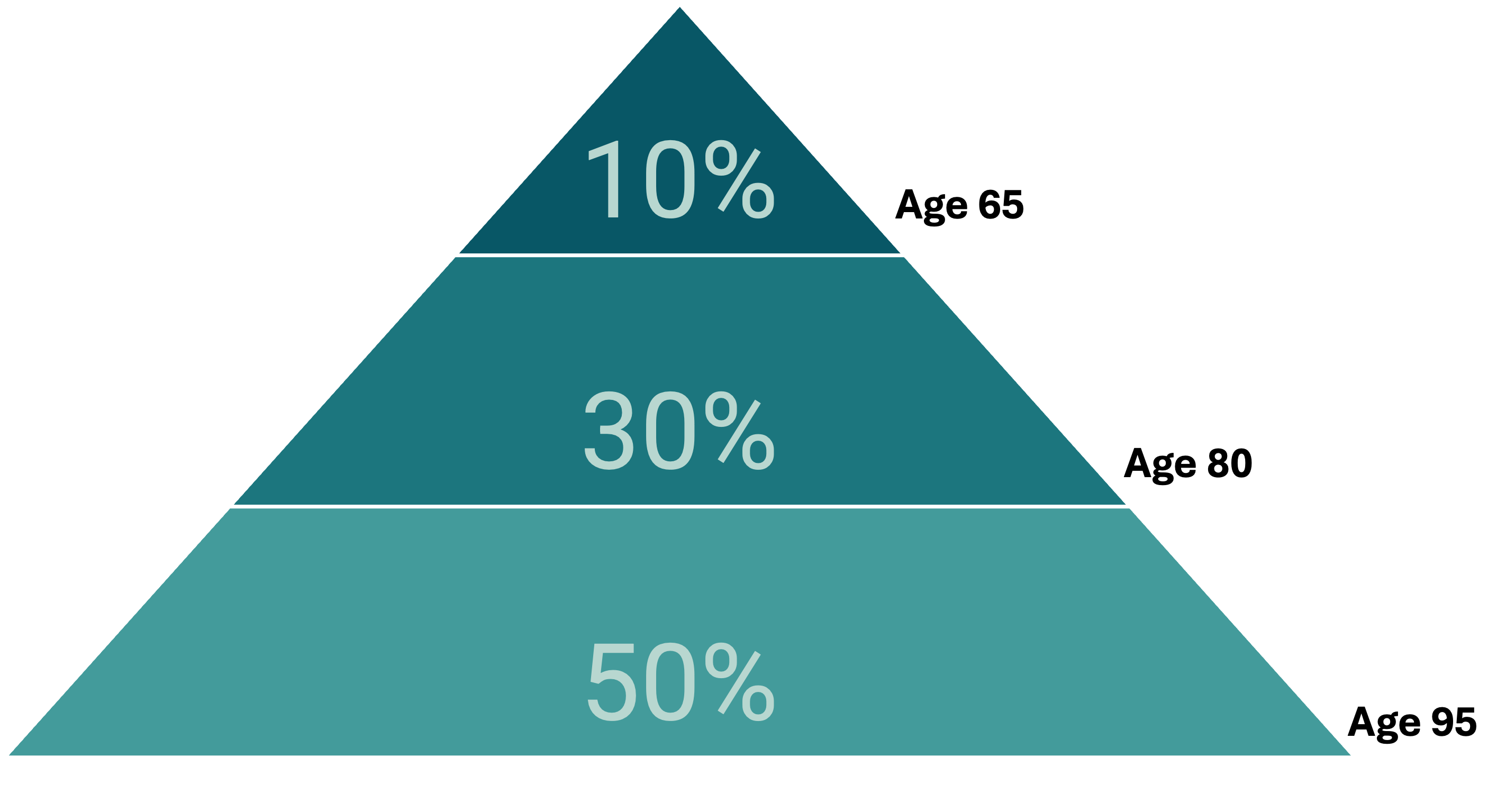Dementian Health’s Services for Families and Caregivers
Comprehensive dementia care, fully covered under Medicare’s GUIDE Model.

Dementia decoded:
Early detection is key
Dementia impacts memory, thinking, and the ability to live independently. Alzheimer’s disease is the most common form, making up about 70% of cases. Other types include vascular, Lewy body, frontotemporal, and mixed dementia.
Early diagnosis and regular screenings starting at age 65 greatly improve care outcomes. Annual dementia screenings are recommended.
Contact Dementian Health to learn more about dementia screenings.
The prevalence and risk of dementia increases significantly as we age:


Identify common dementia symptoms
Catching dementia early empowers individuals and caregivers to manage symptoms sooner and plan ahead with confidence.
Typical indicators of dementia may include:
Forgetfulness or memory lapses
Trouble handling money or medications
Poor judgment or decision-making
Getting lost in familiar areas
Pulling away from social life (without feeling sad)
Struggling to find the right words
Sudden anxiety or depression without past history
Unsteadiness or frequent falls
How Dementian Health supports you
Dementian Health provides comprehensive dementia support tailored for both patients and caregivers. Our expert team; care navigators, licensed clinical social workers, and specialized nurse practitioners works alongside your doctor to ensure care is personalized and effective.
Medication Review and Guidance: Support for safe and effective medication use, helping reduce side effects and improve outcomes.
Dementia Understanding & Prognosis: Clear education about the dementia diagnosis and what changes to expect over time.
Personalized Care Planning: Care plans tailored to meet the evolving needs of individuals living with dementia and their caregivers.
Community Resource Navigation: Connection to local organizations and services that offer support, relief, and practical help.
Emotional Wellness & Coping Tools: Access to counseling and strategies for managing the emotional demands of caregiving and living with dementia.
Ongoing Care Coordination: Routine check-ins to adjust care as needs change, ensuring continuity and responsiveness.
Behavior Support & Strategies: Education and coaching to manage difficult behaviors in a safe, respectful, and effective way.
Support with Housing Transitions: Guidance for navigating changes in living arrangements, including moves to senior care facilities.
Caregiver Respite Services: Options that allow caregivers to take breaks and restore their own well-being while care continues.
24/7 Dementia Support Line: Round-the-clock access to knowledgeable specialists for urgent questions or concerns.
Safety and Risk Mitigation: Help addressing safety risks, including challenges related to driving or wandering.
Legal & Financial Navigation: Assistance understanding power of attorney, financial planning, and other essential documents.
Advanced Care & End-of-Life Planning: Thoughtful discussions around palliative options, hospice, and defining care goals in later stages.


